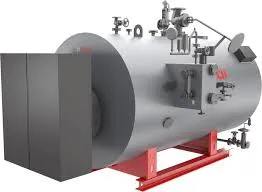
Sep . 23, 2024 16:53 Back to list
Cost Factors for Replacing Your Hot Water Boiler Explained in Detail
Understanding Hot Water Boiler Replacement Costs
Replacing a hot water boiler is a significant investment that many homeowners may face at some point. Making informed decisions about the replacement process can save you money and enhance the efficiency of your heating system. Let's explore the factors influencing hot water boiler replacement costs and what you can expect when budgeting for this essential home upgrade.
Factors Influencing Costs
1. Type of Boiler There are various types of hot water boilers available, including conventional, combi, and system boilers. Each type has its distinct features and price points. Generally, combi boilers can save space and energy, but they tend to be pricier upfront than conventional systems. Ensuring you choose the right type for your home and needs is crucial in determining overall costs.
2. Size and Capacity The size of the boiler required for your home directly influences the cost. A boiler that is too small may struggle to provide sufficient hot water, while one that is too large can lead to inefficiencies and higher bills. Sizing a boiler correctly often requires the expertise of a professional, which may add to initial consultation costs.
3. Installation Costs The installation process itself can vary widely in cost. Factors include the complexity of the job, the location of the boiler, and any necessary modifications to plumbing or electrical systems. Hiring certified professionals ensures the job is done right but can increase expenses significantly compared to DIY efforts.
hot water boiler replacement cost

4. Energy Efficiency and Model Newer, energy-efficient models may come with a higher price tag but can lead to savings over time through reduced energy bills. Check for boilers with a high Annual Fuel Utilization Efficiency (AFUE) rating, as these will yield better performance and savings.
5. Local Labor Rates and Permits Depending on where you live, labor costs may fluctuate. Additionally, some regions may require permits for installation, which can impact the total cost. Researching local regulations will help you prepare for any additional expenses.
Budgeting for Replacement
On average, homeowners can expect to spend between $3,500 to $7,500 for boiler replacement, including the unit and installation. However, this can vary based on the factors mentioned above. To ensure a smooth replacement process, it’s advisable to obtain multiple quotes from different contractors and to factor in potential long-term savings associated with energy-efficient models.
In conclusion, understanding the elements that contribute to hot water boiler replacement costs empowers homeowners to make informed decisions, balancing initial expenses with long-term benefits. By taking the time to research and plan, you can ensure that your new boiler serves your home efficiently for years to come.
-
High-Efficiency Commercial Oil Fired Steam Boiler for Industry
NewsJul.30,2025
-
High-Efficiency Biomass Fired Thermal Oil Boiler Solutions
NewsJul.30,2025
-
High Efficiency Gas Fired Thermal Oil Boiler for Industrial Heating
NewsJul.29,2025
-
High-Efficiency Gas Fired Hot Water Boiler for Sale – Reliable & Affordable
NewsJul.29,2025
-
High Efficiency Biomass Fired Hot Water Boiler for Industrial and Commercial Use
NewsJul.29,2025
-
High-Efficiency Biomass Fired Hot Water Boiler for Industrial Use
NewsJul.28,2025
Related PRODUCTS






















